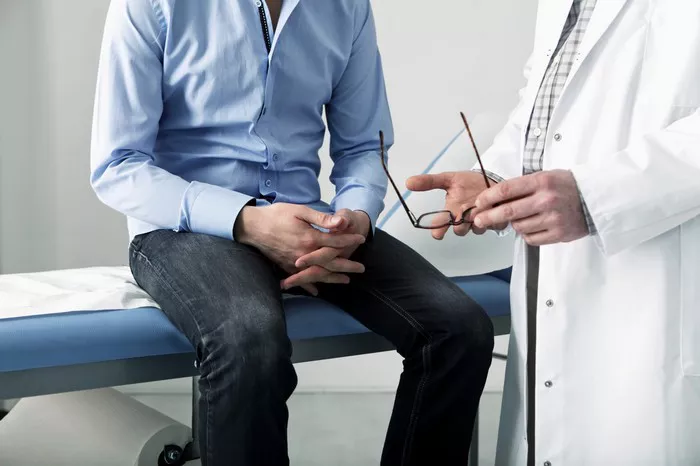Varicocele surgery is a common procedure performed to treat enlarged veins in the scrotum, which can cause discomfort and lead to fertility issues. While the surgery itself is generally safe and effective, the recovery period requires careful attention to ensure the best outcomes and prevent complications. Knowing what to avoid after varicocele surgery is crucial for a smooth recovery process.
This article will explore the essential things not to do after varicocele surgery. By following proper guidelines, you can reduce the risk of complications, promote healing, and return to your normal activities as quickly and safely as possible.
Understanding Varicocele Surgery
Before diving into the things you should avoid after surgery, it’s important to understand what varicocele surgery entails. The procedure is done to remove or tie off the enlarged veins in the scrotum, which can cause pain, swelling, or fertility issues. The surgery is typically performed under local or general anesthesia and involves making small incisions in the groin or scrotum.
Though varicocele surgery is minimally invasive and has a high success rate, it’s still a surgical procedure, and proper aftercare is necessary for healing. Post-operative care helps reduce pain, prevents infection, and ensures the treated area heals properly.
Avoid Strenuous Physical Activity
No Heavy Lifting or Intense Exercise
After varicocele surgery, one of the most important things to avoid is heavy lifting or engaging in strenuous physical activities. Lifting heavy weights or performing high-impact exercises can put stress on the surgical area and increase the risk of complications such as bleeding or swelling. It can also delay healing by placing strain on the incision sites and surrounding tissues.
In the first few weeks of recovery, it is best to avoid any exercise that could strain your lower abdomen or groin. This includes weightlifting, intense cardio, or activities like running or cycling that require significant movement of the lower body. It is advisable to follow your doctor’s instructions about when it is safe to resume physical activity. In most cases, gentle activities like walking are encouraged, but strenuous exercise should be postponed until you receive medical clearance.
Avoid Sexual Activity for a Few Weeks
Sexual activity can also place unnecessary strain on the body after varicocele surgery. For the first few weeks, it is essential to avoid intercourse and any sexual activities that could increase pressure or stress on the area. Engaging in sexual activities too soon could lead to swelling, pain, or even injury to the surgical site. It can also interfere with the healing process and increase the likelihood of complications.
Typically, doctors recommend waiting at least two to four weeks before resuming sexual activity. However, this timeline may vary depending on your individual recovery and the advice given by your healthcare provider. It is crucial to listen to your body and avoid any activity that causes discomfort or strain.
Do Not Ignore Pain or Discomfort
Pain Management is Key
It’s normal to experience some level of discomfort or pain after varicocele surgery. However, ignoring persistent pain or discomfort can be detrimental to your recovery. While some mild discomfort is expected in the first few days, sharp or intense pain could indicate a problem, such as infection or excessive swelling.
If you experience significant pain, it is essential to reach out to your doctor for guidance. Your healthcare provider may recommend pain medications or other treatments to manage discomfort. Avoid trying to tough it out or self-medicate beyond what your doctor has prescribed, as this can lead to complications.
Don’t Skip Follow-Up Appointments
After varicocele surgery, you will likely have follow-up appointments to monitor your healing progress. Skipping these appointments can prevent early detection of any complications and delay treatment if needed. Your doctor will assess the surgical site, check for signs of infection or swelling, and ensure that the veins are healing properly.
These follow-up visits are crucial to ensure that your recovery is progressing as expected and that you’re not experiencing any issues that could require further intervention. Always attend these scheduled visits and communicate any concerns or changes in symptoms to your healthcare provider.
Avoid Wearing Tight Clothing
Avoid Tight Underwear or Clothes
Wearing tight clothing, especially tight underwear, after varicocele surgery can put unnecessary pressure on the scrotum and surgical site. This can cause discomfort, increase swelling, and slow down the healing process. Tight clothing may also irritate the incision site, leading to additional pain or the risk of infection.
Instead, opt for loose-fitting, breathable clothes that allow air circulation and reduce pressure on the area. Loose boxers or soft underwear are typically more comfortable after varicocele surgery, helping to promote healing and prevent irritation. It’s essential to ensure that your clothing does not restrict blood flow or rub against the surgical site.
Do Not Expose the Surgical Site to Infection Risks
Avoid Swimming or Hot Tubs
One important thing to avoid after varicocele surgery is exposing the surgical site to water that may carry bacteria, such as in pools, hot tubs, or lakes. This can increase the risk of infection, which can lead to serious complications. It is also recommended to avoid soaking in a bath for several weeks after surgery, as prolonged exposure to water can interfere with the healing process.
Instead, opt for quick showers during the initial weeks of recovery. Make sure the surgical site stays dry, and avoid scrubbing the area too harshly. Your doctor will provide specific instructions on when it is safe to resume swimming or using hot tubs.
Avoid Touching the Incision Site Without Proper Care
It’s essential to keep the surgical site clean and free from any contaminants. Avoid touching the incision site with unclean hands, as this can introduce bacteria and increase the risk of infection. Always wash your hands thoroughly before touching or cleaning the area. If you need to change the bandages or dressings, ensure that you use sterile supplies and follow your doctor’s instructions on how to properly care for the incision.
Avoid Consuming Alcohol or Smoking
Refrain from Alcohol Consumption
After surgery, it is essential to avoid drinking alcohol, especially in the first few days of recovery. Alcohol can interfere with the body’s healing process, dehydrate you, and increase the likelihood of complications. It can also interact negatively with pain medications or antibiotics that may have been prescribed after surgery.
It’s best to wait until your doctor gives you the go-ahead to consume alcohol, typically after the first few weeks of recovery. In the meantime, prioritize hydration with water and other healthy fluids to support the healing process.
Quit Smoking During Recovery
Smoking can negatively affect blood circulation and slow the body’s natural healing process. It can also increase the risk of infection and delay tissue repair. If you smoke, it’s highly recommended to quit or significantly reduce smoking during the recovery period. This will help promote healing, reduce the risk of complications, and improve your overall health.
Conclusion
Varicocele surgery is generally a safe and effective procedure, but proper post-operative care is essential for the best outcomes. By avoiding strenuous physical activity, sexual intercourse, tight clothing, and infection risks, you can significantly improve your chances of a smooth and speedy recovery. Listening to your body, following your doctor’s instructions, and attending follow-up appointments are key to healing well after surgery. If you experience any unusual pain or complications, always consult your healthcare provider to address any concerns promptly.
Related topics:
























